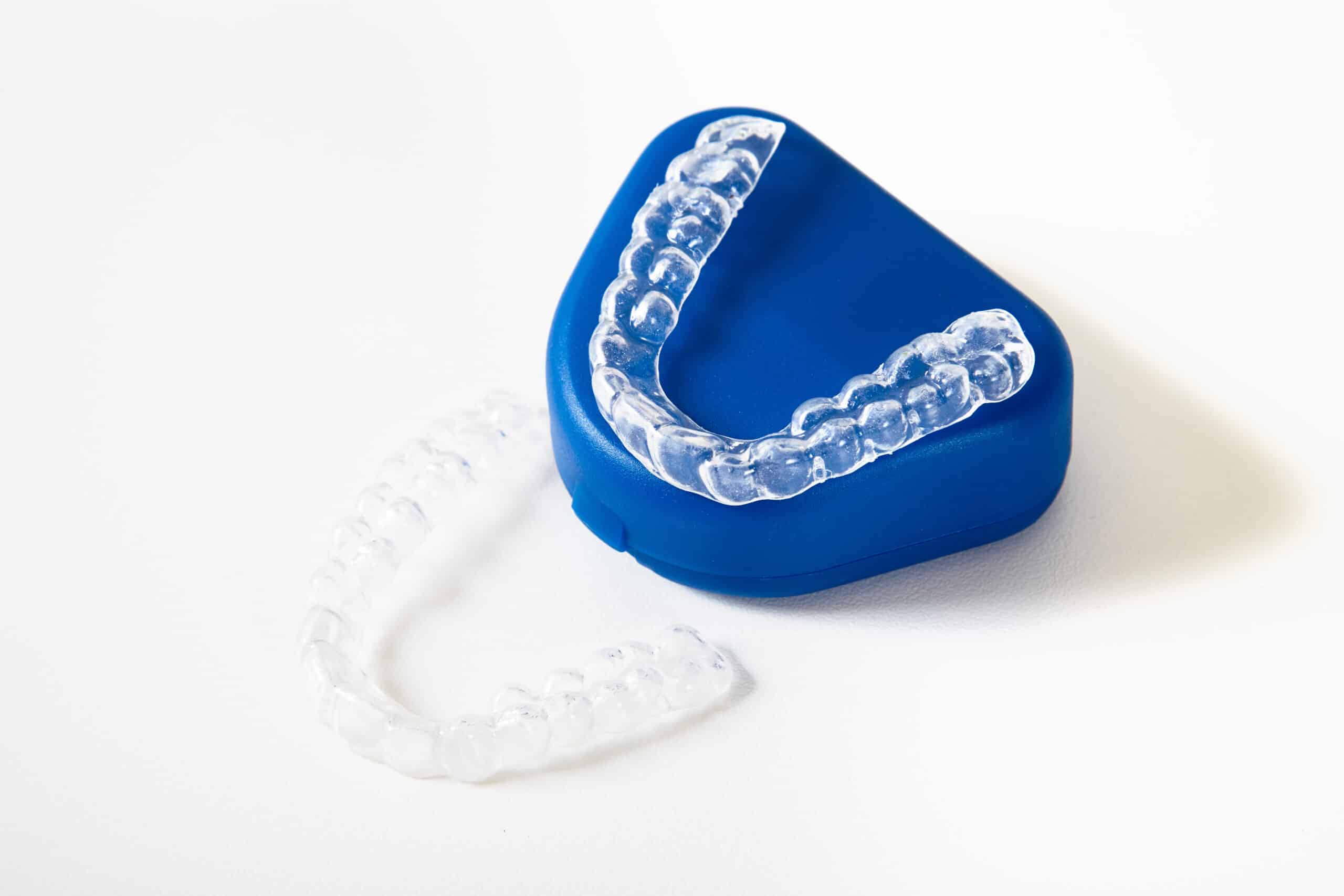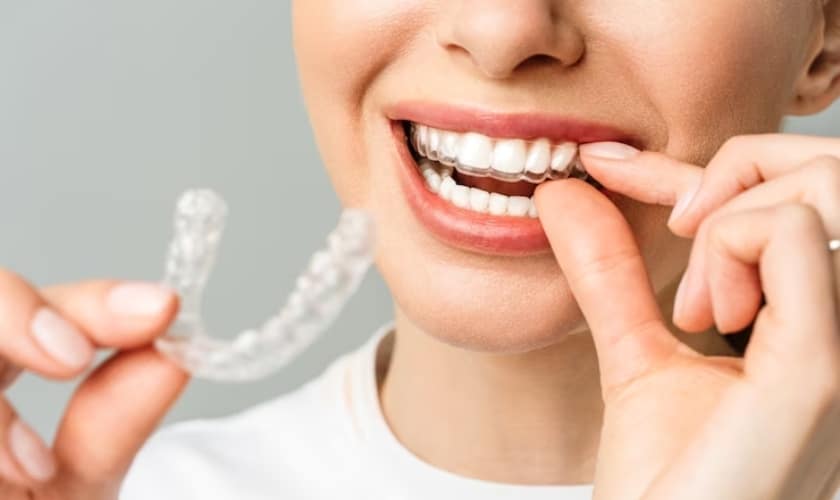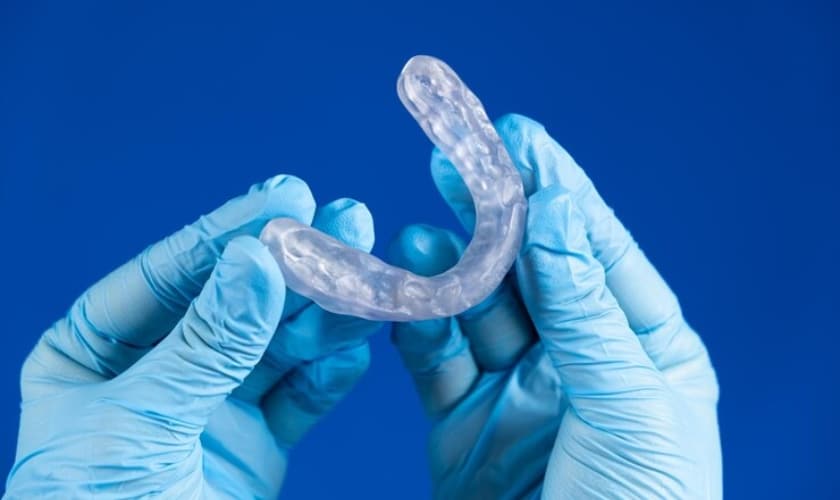
Night guards are a fundamental component of oral health care. Getting these custom-made oral appliances is effective in preventing teeth grinding, clenching, and managing obstructive sleep apnea (OSA). However, understanding when it’s time to replace your night guard is equally critical. In this comprehensive guide, we’ll explore the signs indicating the need for a new night guard and delve into the significance of these dental appliances.
The Role of Night Guards in Oral Health
Before we discuss when to replace your night guard, let’s delve into why these dental appliances are so important.
Night Guards for Teeth Grinding and Clenching
Dental guards that dentists recommend wearing during bedtime are indispensable for individuals grappling with bruxism. This condition is characterized by the involuntary grinding and clenching of teeth during sleep. During this nocturnal activity, you can have severe consequences if left unaddressed.
Night guards, made from durable and comfortable materials, act as protective barriers. They cushion the impact of grinding, thus averting excessive wear on your teeth. Additionally, they diminish the risk of jaw pain, headaches, and other discomforts frequently associated with bruxism.
The importance of night guards extends beyond safeguarding your teeth. By preventing damage to your enamel and relieving the pressure on your jaw, they can substantially enhance your sleep quality and overall well-being. These dental appliances are available in various forms, from over-the-counter options to custom-fitted guards prescribed by your dentist. Properly fitted oral appliances ensure maximum comfort and protection against the damaging effects of bruxism.
Oral Mandibular Advancement Devices for OSA
Oral Mandibular Advancement Devices (OADs) represent a specialized class of night guards specifically designed for the management of Obstructive Sleep Apnea (OSA). OSA is a condition characterized by recurrent disruptions in breathing during sleep, primarily caused by the relaxation of throat muscles.
OADs work on the principle of repositioning the lower jaw and tongue to prevent the airway from collapsing. By promoting proper airway alignment, OADs ensure the unobstructed flow of oxygen during sleep. This innovative approach makes OADs an effective alternative to Continuous Positive Airway Pressure (CPAP) machines, the traditional OSA treatment.
The versatility of OADs extends beyond sleep apnea management. Individuals dealing with both sleep apnea and bruxism can find relief in OADs as they not only address breathing difficulties but also shield teeth from the harmful effects of grinding and clenching. This dual functionality enhances their cost-effectiveness and utility.
Here’s When to Replace Your Night Guard
Below are some signs that can help you determine the right time to change your dental appliance.
Visible Wear and Tear
Over time, night guards endure wear and tear, evident through cracks, holes, or a rough texture. These signs indicate it’s time for a replacement. Worn-out night guards can fail to provide the necessary protection and may even cause discomfort.
Changes in Fit and Comfort
A well-fitting night guard is crucial. If your oral appliance no longer fits comfortably or feels loose, it might be due to changes in your bite or jaw alignment. A poor fit can lead to dental issues and discomfort during sleep, signalling a replacement need.
Unpleasant Odor or Taste
Your nighttime dental guards can harbour bacteria and develop unpleasant odours or tastes over time. Even with regular cleaning, if you notice a persistent bad taste or odour, it’s a clear sign that your night guard is past its prime and should be replaced.
Discolouration
The appearance of your night guard matters. Discolouration, staining, or a cloudy look may indicate it’s retaining bacteria and not effectively safeguarding your teeth. A discoloured dental guard affects not only hygiene but also protection.
Reduced Effectiveness
If your night dental guard is intended for bruxism, its primary function is to prevent teeth grinding and clenching. Increased tooth sensitivity, jaw pain, or frequent headaches can signal that your night guard is no longer effective and needs replacement.
Irregular Check-ups
Regular dental check-ups are crucial. If you haven’t had one in a while, consult your dentist about your night guard’s condition. They can assess its effectiveness and guide on when to replace it, ensuring optimal oral health.
Maintaining Your Night Guard
While knowing when to replace your night guard is essential, proper care and maintenance can prolong its lifespan. Here are some tips to keep your oral appliance in optimal condition:
Regular Cleaning
Proper hygiene is key. Clean your night guard with a non-abrasive toothpaste and a soft-bristle toothbrush, ensuring all crevices are cleaned thoroughly. Rinse it with cold water before use to avoid any residual cleaning agents.
Proper Storage
Storage impacts the longevity of your dental shield. When not in use, store it in a well-ventilated container to prevent bacterial growth. Avoid leaving it in direct sunlight or extreme heat, which can compromise the material.
Regular Dental Check-ups
Schedule routine dental appointments to have your night guard assessed by a professional. Regular check-ups ensure it’s still effective and offer guidance on when to replace it based on its type and material.
Replacement Schedule
Discuss a replacement schedule for your oral guard with your dentist. The frequency of replacement can vary based on the type and material of your appliance. Some may require more frequent replacement than others.
The Versatility of Oral Mandibular Advancement Devices (OADs)
In the realm of sleep apnea treatment, OADs have gained recognition for their effectiveness. They work by repositioning the lower jaw and tongue, preventing the airway from collapsing during sleep. This allows for uninterrupted breathing, alleviating the symptoms of obstructive sleep apnea (OSA).
The Connection Between OSA and Night Guards
OADs can also serve as night guards, as they share the commonality of being worn during sleep. While OADs primarily treat OSA, they can also protect teeth from bruxism for individuals who suffer from both conditions. This duality makes them a versatile and cost-effective solution for those in need.
Dental guards or appliances play a vital role in maintaining oral health and addressing specific conditions like bruxism and sleep apnea. Regularly assessing their condition and knowing when to replace them is essential to ensure their effectiveness. By keeping a keen eye on the signs of wear and employing proper care and timely replacements, you can enjoy the protective benefits of your night guard for years to come. Whether using a night guard for bruxism or an OAD for OSA, your oral health is a priority. Schedule an appointment today and get your night guard tailored to your needs.
Source: Teeth Talk Girl
FAQs on Night Guards
Q. What types of night guards are available, and how do I choose the right one?
Night guards come in various types, including stock, boil-and-bite, and custom-fit. The right choice depends on your comfort, budget, and dental needs.
Q. Can I wear a night guard with braces or other dental appliances?
Yes, you can. Some night guards are designed to work with braces and other dental devices. Count on your dentist to recommend the best appliance that makes wearing night guards comfortable.
Q. How do I clean and maintain my night guard?
To clean your night guard, use non-abrasive toothpaste and a soft brush. Rinse thoroughly before storage. Store it in a well-ventilated case to prevent bacterial growth.
Q. Are there any side effects or risks associated with wearing a night guard regularly?
While night guards are generally safe, extended use may lead to mild tooth movement or changes in your bite. This is when you need to see your dentist to assess the risks of these dental appliances and create a personalized treatment plan.
Q. Can I buy a night guard over-the-counter, or should I always get one from a dentist?
You can find over-the-counter night guards, but custom-fit guards from a dentist are more effective. They provide better protection and comfort for your unique needs.

